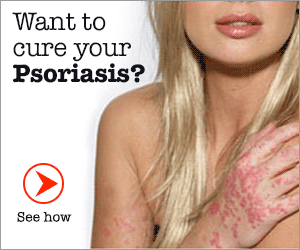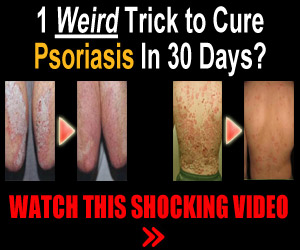What Is Psoriasis About
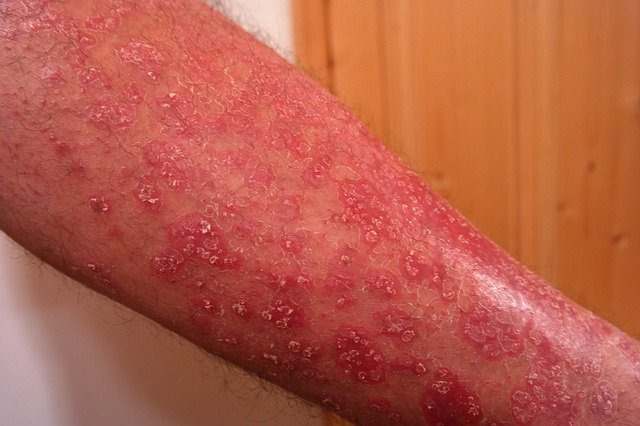
Psoriasis is a chronic inflammatory skin disease affecting about 2% of the world’s population. This long-lasting autoimmune disease is affecting millions of people across the world. About 125 million people suffer from this skin condition that produces plaques of thickened scaling skin. Dry flakes of skin scales are the result of excessive skin cell proliferation, which is triggered by inflammatory chemicals produced by specialized white blood cells called lymphocytes. In other words, it speeds up the life cycle of skin cells, causing them to build up rapidly on the skin surface, resulting in the formation of scales and red patches, which can be itchy and painful. Skin cells can multiply up to 10 times faster than normal. Scalp ( plenty of dandruff ), elbows, and knees are the most affected areas, but the disease can affect other parts of the body. It can also affect the nails, joints, area around genitals, and the mouth. In extreme cases, psoriasis can spread throughout the entire surface of the body.
Who Can Get Psoriasis
Psoriasis affects both sexes and all races. It can occur in people of any age, from children to seniors, but most commonly occur in early adult years. People with psoriasis are more susceptible to obesity, diabetes, inflammatory bowel disease, cardiovascular disease, and psoriatic arthritis( up to 30 % of psoriasis sufferers can be affected with psoriatic arthritis ).
Is Psoriasis Contagious
Psoriasis is not contagious and can be initiated by certain environmental triggers.
Is There A Cure For Psoriasis
Although there is no cure for this common skin condition, symptoms can be managed thru a healthy diet and a proper lifestyle. Alcohol, smoking, processed foods, sugars, and other known triggers should be avoided in order to properly manage and prevent psoriasis outbreaks.
How To Get Rid Of Psoriasis
Through my struggle with psoriasis, I realized that food and lifestyle have the greatest impact on controlling this disease. With unhealthy food and lifestyle, the condition of this disease worsens, which tells us that it originates from the gut. Unhealthy foods allow the development of harmful pathogenic bacteria in our gut, and when they overgrow, they can damage the walls of the intestines and begin to penetrate the blood. The immune system is subsequently weakened and is unable to take away toxins from the body, which is shown by outbreaks of psoriasis. Psoriasis is also associated with an improper liver function. People with psoriasis should use herbs and follow a strict diet for liver protection in order to prevent psoriasis outbreaks. Such diets do not recommend the consumption of sausages, smoked meat and pork, processed foods, foods that are acidic (lemons, oranges, strawberries, …), coffee, cocoa, canned meat and fish, and ALCOHOL. It is recommended to eat fermented dairy foods ( kefir, yogurt, and aged cheeses ), Omega-rich foods ( linseed, wild Pacific salmon, black seed oil,…), lots of vegetables ( especially green leafy vegetables ) and fruits in moderate quantities ( it is highly recommended to eat apple compote), fresh fish and white meat. In a combination of a healthy diet that maintains the body’s ph balance and ointments prepared from herbs, this disease can be controlled very well. In the treatment of this disease is the need for a comprehensive approach, which involves treatment from inside and outside. With appropriate approaches and avoiding known triggers of psoriasis, this disease can be well controlled. In Next Post( CLICK HERE TO SEE IT ) I will describe how I successfully treated psoriasis with the help of natural remedies and appropriate diet. It is true that the diet requires to give up many things, but be aware that it is worth the price of health. After many years of fighting this disease, I managed to ‘cure’ psoriasis, which spread over my entire head, face, beard, ears, and under the armpits. With the appropriate approach that I developed over the years, my symptoms of psoriasis gradually disappeared. Symptoms occasionally occur, but in a very innocent form. They usually appear when I eat something that I should not. The worst are sausages, processed and smoked meat, alcohol, too much sugar, and excessive consumption of carbohydrates. Over time, we get used to such a diet and, consequently, we no longer have the desire for such food. With proper diets, we also take care of a balanced, healthy diet, which has a lot of positive effects on our health.
Types Of Psoriasis with Pictures Of Psoriasis
There are several different types of psoriasis:
- Plaque Psoriasis or Psoriasis Vulgaris is the most common type. It is estimated that 85 to 90% of patients with psoriasis suffer from this form, which appears as red, inflamed skin covered with silvery-white scaly skin. The most commonly affected areas, which are known as plaques are found on the elbows, knees, scalp, and back.
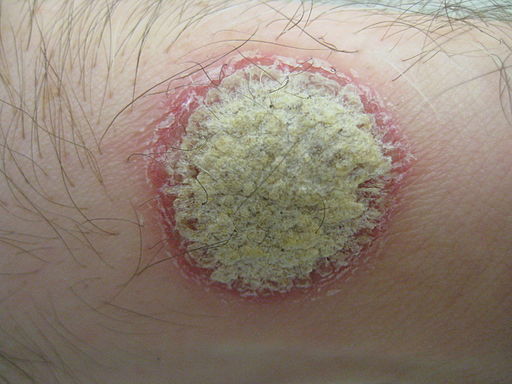
- Erythrodermic Psoriasis Or Psoriatic Erythroderma is very rare. It often covers large areas of the body, which is often the result of an exacerbation of unstable plaque psoriasis. It can be accompanied by severe itching, swelling, and pain. It can be triggered by withdrawal from a systematic psoriasis treatment, certain medications, and infection. Due to the extreme inflammation and exfoliation of the skin, which interfere with the body’s ability to regulate temperature and perform barrier functions, this type can cause some serious illness. This form can be fatal if left untreated.
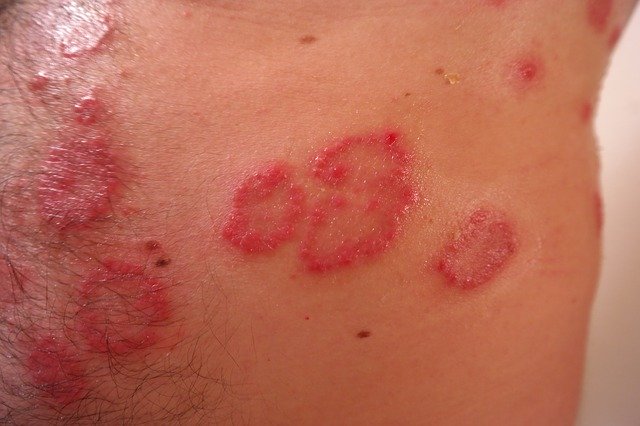
- Guttate Psoriasis causes small scaly, red or pink, droplet-like lesions (papules). It is common in childhood or young adulthood and appears over large areas of the body, mainly on the torso, arms, and legs. This type can be triggered by a bacterial infection (strep throat, tonsillitis), skin injuries, stress and certain medications such as beta-blocker and anti-malaria medications.
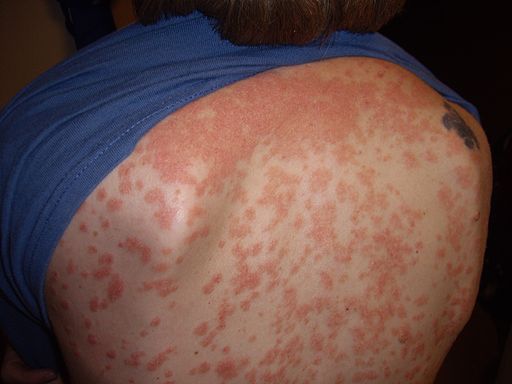
- Pustular Psoriasis appears as puss-filled blisters(noninfectious pus), which develops quickly in widespread patches(generalized pustular psoriasis) or in smaller areas on your hands, feet or fingertips. It’s uncommon form and is more common in adults.
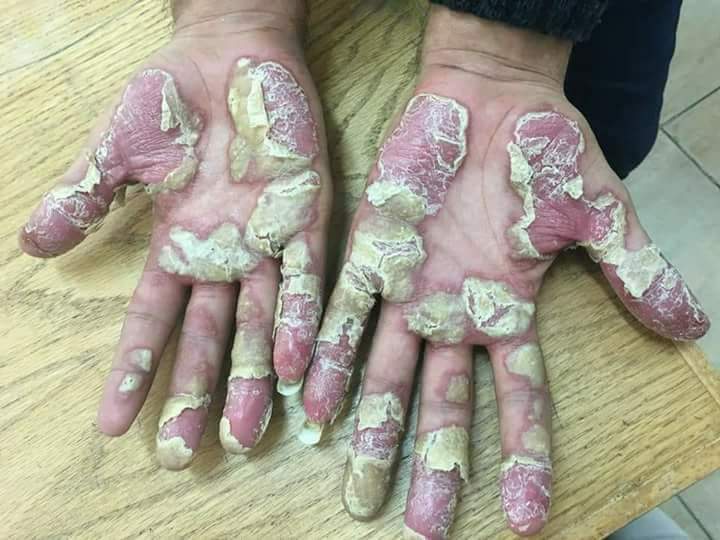
- Inverse Psoriasis or Flexural Psoriasis causes smooth patches of red, inflamed skin, which frequently affects the skin around skin folds in the genitals, under the breasts and armpits. It is believed that infections (such as fungal infection), heat, and trauma may trigger this atypical form of psoriasis.
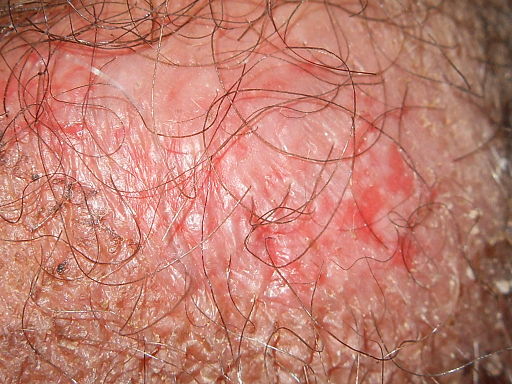
- Nail Psoriasis affects fingernails and toenails, which causes a variety of changes in the nail appearance. The most common changes include pitting of the nails, abnormal nail growth and discoloration of the nail, bleeding from capillaries under the nail, skin changes around and under the nail, loosening, and separation of the nail (known as onycholysis ). In severe cases, it may cause crumbling of the nail.
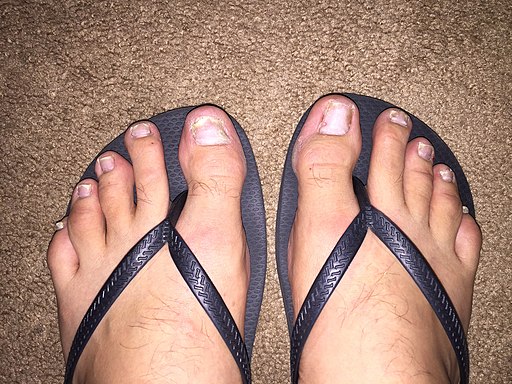
- Napkin Psoriasis is a particular form of psoriasis, which affects babies younger than 2 years. It causes red papules with silver scale in the diaper area and can also spread to other areas of the body ( torso or limbs ). This form is often misdiagnosed as a diaper rash. Babies who are breastfed have a lower chance of getting this form of psoriasis (due to the lower pH compared to formula-fed babies ).

- Psoriasis In The Mouth or Oral Psoriasis is very rare and may affect the inside of the mouth( cheeks, tongue, and very rarely gums ). It causes red and white patches or lesions in your mouth. By maintaining good oral hygiene and avoiding known psoriasis triggers, this form can be prevented with great success.

- Psoriatic Arthritis is a chronic disease characterized by a form of inflammation of the skin and joints. Some of the symptoms include low back pain, swollen joints, joint pain and morning stiffness, swelling of the toes and fingers, foot pain, fatigue, nail pitting,…This form can affect any joint, but most commonly affects the joints of the fingers and toes. Other areas that can be affected by psoriatic arthritis are the hips, knees, spine, and sacroiliac joint ( the joint between the sacrum and the ilium bones of the pelvis ).
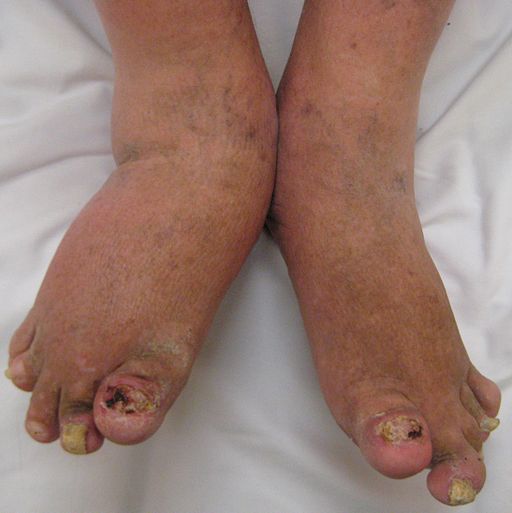
What Cause Psoriasis
 There is still no answer to what causes psoriasis. Nevertheless, scientists are closer to this answer every day. So far, they found that is linked to genetics and the immune system, based on decades of research.
There is still no answer to what causes psoriasis. Nevertheless, scientists are closer to this answer every day. So far, they found that is linked to genetics and the immune system, based on decades of research.
Psoriasis is an autoimmune condition, for which is thought to be related to white blood cells known as T cells. In this autoimmune disease, T cells attack healthy skin cells mistakenly. Normally, white blood cells protect our body against viruses, bacterias, and infections, but in the case of psoriasis, they become overactive, which causes increased production of healthy skin cells. This mistaken attack is similar as if the body would fight an infection or heal a wound. Increased production of healthy skin cells causes patches of abnormal skin. This process causes new skin cells to develop too quickly, in days rather than weeks, resulting in red, itchy and scaly patches on the skin’s surface. What causes T cells to malfunction are not known yet, but researchers believe that genetics and environmental factors play a major role.
Genetics plays an important role in the potential development of this disease. It is estimated that about 10% of people with psoriasis have this disease in the family. According to the National Psoriasis Foundation (NSF), only 2% to 3% of people with the gene will develop the disease.
Lifestyle is an important factor in controlling this disease. Excessive alcohol consumption, smoking, stress, unhealthy diet, obesity, chronic infections and changes in season and climate may worsen the disease.
Microbes can also trigger psoriasis. A bacterial infection such as strep throat can cause psoriasis. This disease may be worsened by certain types of bacteria, such as Candida Albicans, Malassezia and Staphylococcus aureus. It is very important that we maintain healthy bacterial flora in our gut by consuming probiotics and prebiotics, which play an important role in controlling this disease. Fermented foods like kefir, sour cabbage, kombucha contain a lot of positive bacteria for our gut that helps to improve the symptoms of psoriasis.
This disease can also be caused by certain medications, such as beta-blockers, antimalarial drugs, lithium, non-steroidal anti-inflammatory drugs, and several others. Topical steroid withdrawal ( steroid creams ) may exacerbate psoriasis due to the rebound effect. Because I saw what steroid creams did to my mom I never used these creams. I use creams made with natural ingredients and flower waters or hydrosols which are at least as effective as drugs but without side effects.
What Triggers Psoriasis
This disease usually starts because of a trigger. Some of the factors that can trigger psoriasis include:
- Unhealthy diet ( processed foods, sugar, too many carbohydrates,..)
- Alcohol
- Smoking
- Stress
- Skin injuries ( cuts, sunburns, bug bites,..)
- Infections (a sore throat, skin infections,..)
- Vitamin D deficiency
- Medications ( lithium, beta-blockers, antimalarial drugs, iodides,..)
Psoriasis Related Conditions
Psoriasis patients are at greater risk of developing cardiovascular disease, diabetes, cancer, liver & kidney disease, depression, and several other conditions. Data shows that up to 30% of people with psoriasis develop psoriatic arthritis.
Psoriasis And Cardiovascular Disease
Psoriasis is linked to an increased risk for cardiovascular disease, especially in patients with severe psoriasis. Studies show that proper treating can significantly reduce the chance of heart attack or stroke. Every second patient with severe psoriasis has an increased risk of developing a major cardiac event and 43% more likely to have a stroke.
Psoriasis And Diabetes
Patients with psoriasis are at risk of type 2 diabetes. Every third patient with severe psoriasis may be diagnosed with type 2 diabetes.
Can Psoriasis Cause Cancer
Several studies have found that people with psoriasis have a greater chance of getting cancer. It was found that every second patient (52%) has the chance to develop lung cancer. There is also a 205% increase in the risk of developing gastrointestinal cancers, and a 431% increase in the risk of developing skin cancer. Psoriasis also increases the risk of developing liver cancer, urinary tract cancer, and pancreatic cancer.
Psoriasis And Liver & Psoriasis And Kidney
Based on recently published studies, psoriasis patients are at increased risk for developing a liver disease known as nonalcoholic fatty liver disease (NAFLD). Some of the studies have also linked psoriasis with chronic kidney disease.
Psoriasis And Depression
Depression is one of the conditions that can affect patients with psoriasis. The onset of disease can trigger various emotional responses, such as poor self-esteem, fear of public rejection and mood disorders. Proper treatment of psoriasis is, therefore, necessary to prevent depression and other conditions.
Other Conditions
Psoriasis increases the risk of developing several other conditions, such as Crohn’s disease, Metabolic Syndrome, Osteoporosis, Uveitis (eye disease), Obesity, anxiety, hypertension, dyslipidemia, and inflammatory bowel disease.
What Is Psoriasis Treatment
Treatment of psoriasis is crucial for controlling this disease. There are many ways to treat it. Although it is not curable, it is very manageable with the right way of treatment. Below I will describe the treatment methods of official medicine, and in the continuation, a natural treatment that I’ve been using over the years with great success.
Psoriasis Biologic Medications
These types of drugs are usually prescribed for moderate to severe psoriasis and psoriatic arthritis that has not responded to other treatments. It has been shown that ‘biologics’ are safe for long-term use and are generally well-tolerated.
Systemic Medications For Psoriasis
Systemics are prescribed for patients with moderate to severe psoriasis and psoriatic arthritis and are taken orally or by injection. People who are treated by systemic medication should have regular blood and liver tests to check for medication toxicities.
Phototherapy For Psoriasis
Light therapy has long been used for psoriasis, especially in the form of sunlight. Scientists discovered which wavelengths are the most effective, therefore they created special lamps for this type of therapy. Patients are exposed to ultraviolet light on a regular basis and under medical supervision.
Topical Medications For Psoriasis
These medications are applied directly to affected areas. The market is full of several different effective topical treatments for psoriasis, such as:
- Otc Topicals: Salicylic acid and coal tar are two active ingredients that were approved by FDA for psoriasis treatment. Other products that contain substances such as aloe vera, capsaicin and jojoba are also used to relieve symptoms of psoriasis.
- Non- Steroid Topicals: Similar to other topical treatments, Non- Steroid treatments helps to normalize excessive cell growth and reduce inflammation. These types of topicals are safer to use in long-term use, although it can also cause some unwanted side effects. Some of these are:
- Vectical ( Calcitriol ) is a natural form of Vitamin D, which helps to control excessive skin cell production. It can be applied to the almost whole body, except for the face, lips, and eyes. Side effects are shown as excessive calcium in the urine and some skin issues such as itching. Side effects are very rare.
- Zithranol- RR ( Anthralin ): a synthetic substitute for chrysarobin, which is a compound found in Goa powder made from the bark of the South American araroba tree. It helps to reduce the growth of skin cells. Long-term use doesn’t cause side effects.
- Tazorec ( Tazarotene ): Vitamin A derivate, known to reduce skin cells growth. Side effects include increased redness of psoriasis plaques, skin irritations, dry skin and increased susceptibility to sunburn. Additional sun protection is recommended when this medicine is used.
- Dovonex ( Calcipotriene ): Synthetic Vitamin D3, which was formulated to reduce skin cell growth. It can also be used on scalp and nails. Side effects include irritation of the skin, burning, stinging, dry skin, dermatitis and in severe cases worsening of psoriasis.
- Taclonex( Calcipotriene And Betamethasone Dipropionate ): Combination of calcipotriene with the steroid betamethasone dipropionate helps to reduce skin cells growth and inflammation. It should not be used on sensitive skin areas such as a face, groin, and armpits. Side effects include skin thinning and irritation, redness of the skin, worsening of psoriasis and in some cases swollen fine blood vessels at the application site.
- Steroid Topicals: Topical corticosteroid ointments are the most used and effective treatments when diagnosed with psoriasis. Corticosteroids are referred to as anti-inflammatory agents, which helps to reduce psoriasis lesions. Although it is effective, long-term use may cause osteoporosis, bone issues, diabetes, cardiovascular disease, an increased risk of infections, high blood pressure, obesity, glaucoma, thinning of the skin (atrophy) and several other conditions. Corticosteroids must be used on areas for which it was prescribed in order to avoid unwanted side effects. Rapid withdrawal of topical corticosteroids can cause serious psoriasis flares, fatigue, joint pains and in severe cases even death. Long-term use on large areas of the body can cause serious side effects, similar to those when taken oral steroids. Some tips when using steroid topicals:
-
- Do not use it for more than 3 weeks
- Do not use it around eyes, unless it’s formulated for this area
- Use it in small amounts on the affected areas only
- With the potency of steroid ointments, the risk of side effects is higher
- Always talk with your doctor before you start using steroid ointments
Psoriasis Diet:
Several studies confirmed that diet plays a major role in controlling psoriasis outbreaks. Omega-rich foods are proven to have a beneficial effect on psoriasis. Fish oil, hemp oil, linseed oil, and black seed oil are some of the Omega-rich fats examples. Other cold-pressed oils such as extra virgin olive oil are beneficial as well. Healthy intestinal flora is one of the most important ways to avoid psoriasis outbreaks. Probiotic and prebiotic-rich foods, such as Kefir, colonize intestines with beneficial bacteria that help to reduce the symptoms of psoriasis. Diet recommendations include consumption of wild fishes such as salmon, anchovies, herring, and mackerel, green leafy vegetables, fruits, nuts, legumes, and whole grains (which should be soaked at least overnight). Individuals with psoriasis should avoid pork meat, processed meats (sausages, smoked meats,..), alcohol, red meat, sugar, dairy products, and too many carbohydrates. Food that worsens psoriasis in one person does not necessarily worsen psoriasis in another person, so it is important that psoriasis patients regularly monitor the body’s responses to food.
Surgery For Psoriasis
Some of the studies even found that removal of the tonsils may benefit those who suffer from chronic plaque psoriasis, guttate psoriasis, and palmoplantar pustulosis.
Natural Treatment For Psoriasis
Many triggers affect the development of the disease. Patients with psoriasis must learn to recognize triggers and avoid them. General triggers are known, but for each patient with psoriasis, they work differently. What affects the development of symptoms in one patient with psoriasis does not necessarily affect other psoriasis patients. The natural treatment of psoriasis is long-term, but very effective and without side-effects. It includes treatment with natural herbs, omega-rich oils and foods, proper diet and the use of natural ointments and hydrosols.
The first symptoms of psoriasis appeared to me when I was 26 years old. Because my mother has psoriasis, this diagnosis did not surprise me at all. The only thing that surprised me was the prescription, which was filled with steroid creams. These creams, in the long run, do not bring anything good. I saw what they did to my mom’s skin. Since I was not a “candidate” for other forms of treatment, I decided to start treating this disease naturally. After years of testing various natural substances and diets, I managed to find a way to get rid of the symptoms of psoriasis. This method involves a comprehensive approach to the treatment of psoriasis and begins to treat from the inside- out, that is, in the intestines, and continues outside, at points where psoriasis occurs.
These Books Can Help You Overcome Psoriasis- CLICK HERE
?Wanna Learn More About Natural Psoriasis Treatment? Click Here?
?Click Here If You Want To Learn About Amazing Benefits Of Essential Oils?
Reference: Wikipedia
Disclaimer: All information presented on this website is for informational purposes only. These statements have not been evaluated by the Food and Drug Administration. This website is not intended for diagnosis, treatment, treatment or prevention of disease and is not intended for substitution treatment. This information is not meant to cover all possible uses, precautions, interactions or adverse effects. This information may not fit your specific health circumstances. Never delay or disregard seeking professional medical advice from your doctor or other qualified healthcare providers because of something you have read on whatcure.com. Please seek the advice of a healthcare professional for your specific health concerns.


